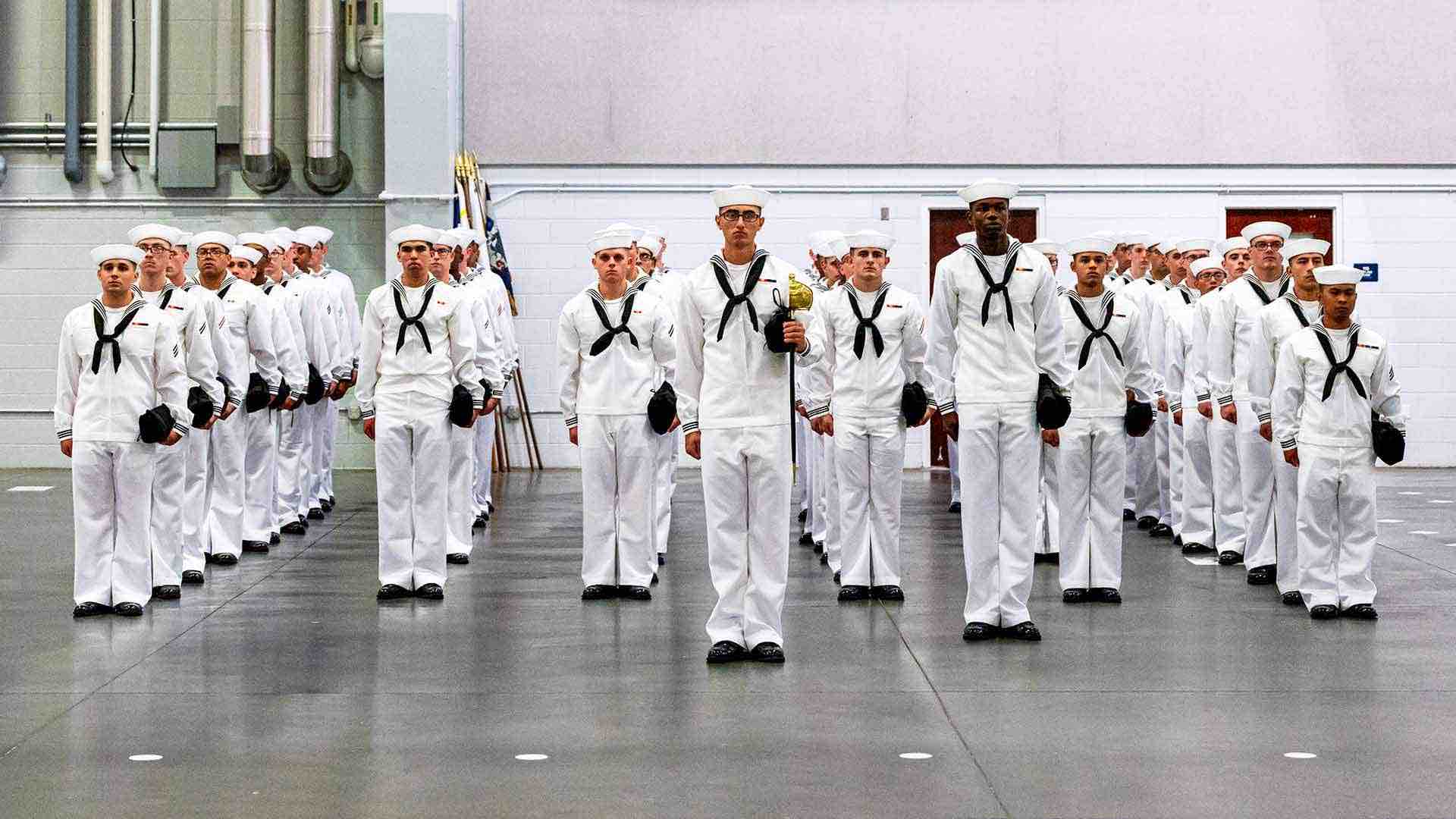What Is Navy Boot Camp Like?
Recruit Training Command, better known as “Navy boot camp” is the Navy’s only enlisted training facility. Located in Great Lakes, IL, once you're here, you’ll learn all the skills you need to transform from civilian to Sailor. For 9 weeks, you’ll be completely immersed in Navy culture, tradition and heritage with fellow recruits from around the country. All of the training you receive will create a strong foundation for your future in the Navy and set you up for success no matter the career you’ve chosen.
What To Expect
Navy boot camp lasts 9 weeks. The first two weeks of training are the most challenging because you’ll be shifting your perspective from civilian to Sailor and training for several hours each day. These two weeks are also your first chance to learn how a Navy team operates and meet your fellow Sailors who will be there to support you throughout your journey. Training is physically, emotionally and academically challenging, but you’ll graduate as a stronger version of yourself.
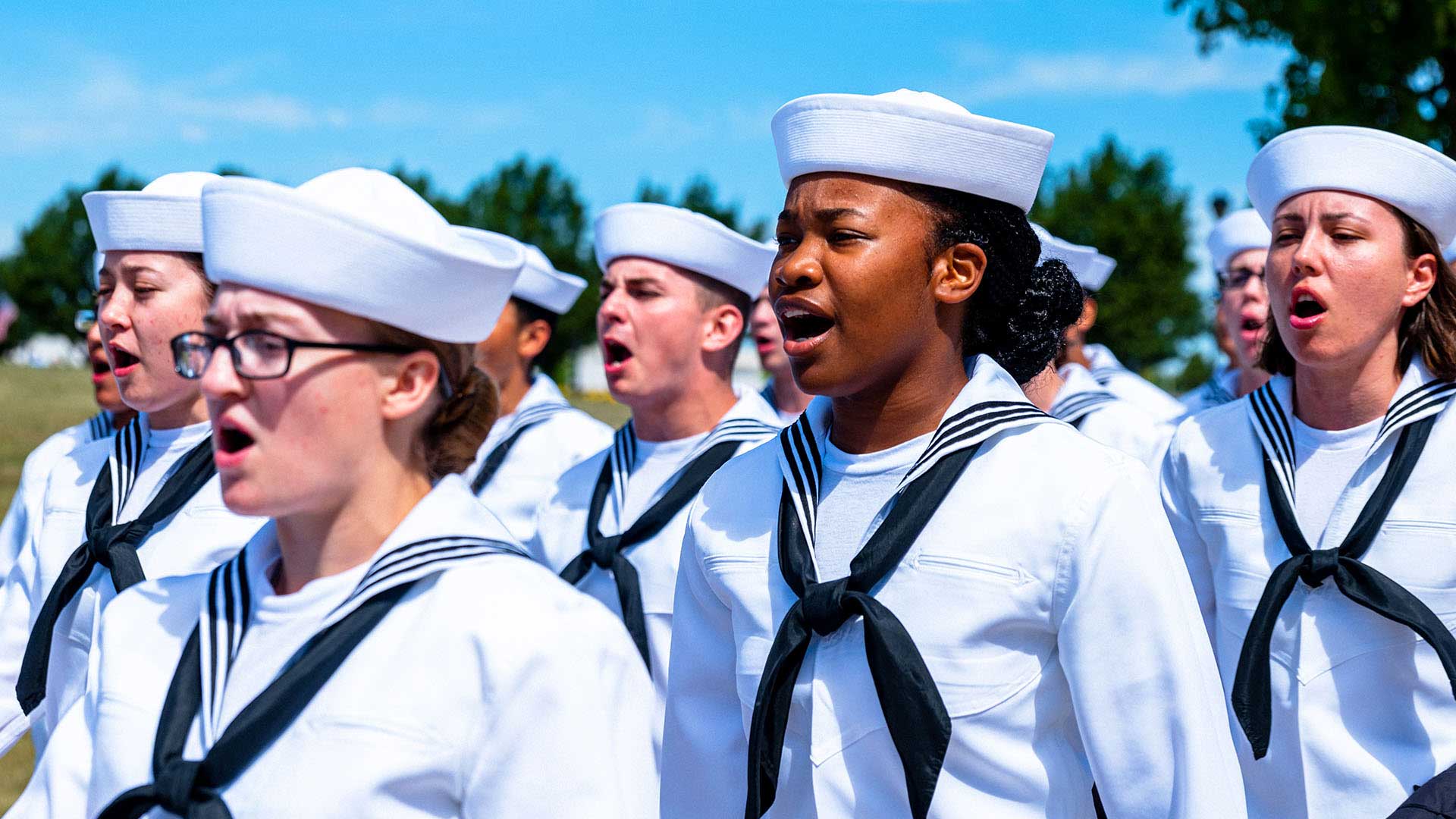
Navy Sailors recite a cadence while marching at Recruit Training Command, or Navy Boot Camp, in Great Lakes, IL.
Navy Officers, including Physicians, Chaplains and Nurses do not go to boot camp; instead, they may go to Officer Development School (ODS) or Officer Candidate School (OCS). Find out more about joining the Navy as an Officer.
Week 1: Processing
The first week of boot camp is known as Processing. On your first night, you will be able to make a phone call to your family or guardians before turning in your device for the duration of training. Immediately upon arrival, you are assigned to a division. You’ll receive a full medical, dental and fitness screening. Women will receive a pregnancy test, and all recruits will be subject to a drug urine screening once they are on-site. Women who are pregnant will not be able to continue at boot camp, and anyone who fails to pass the drug screening will be disqualified immediately.
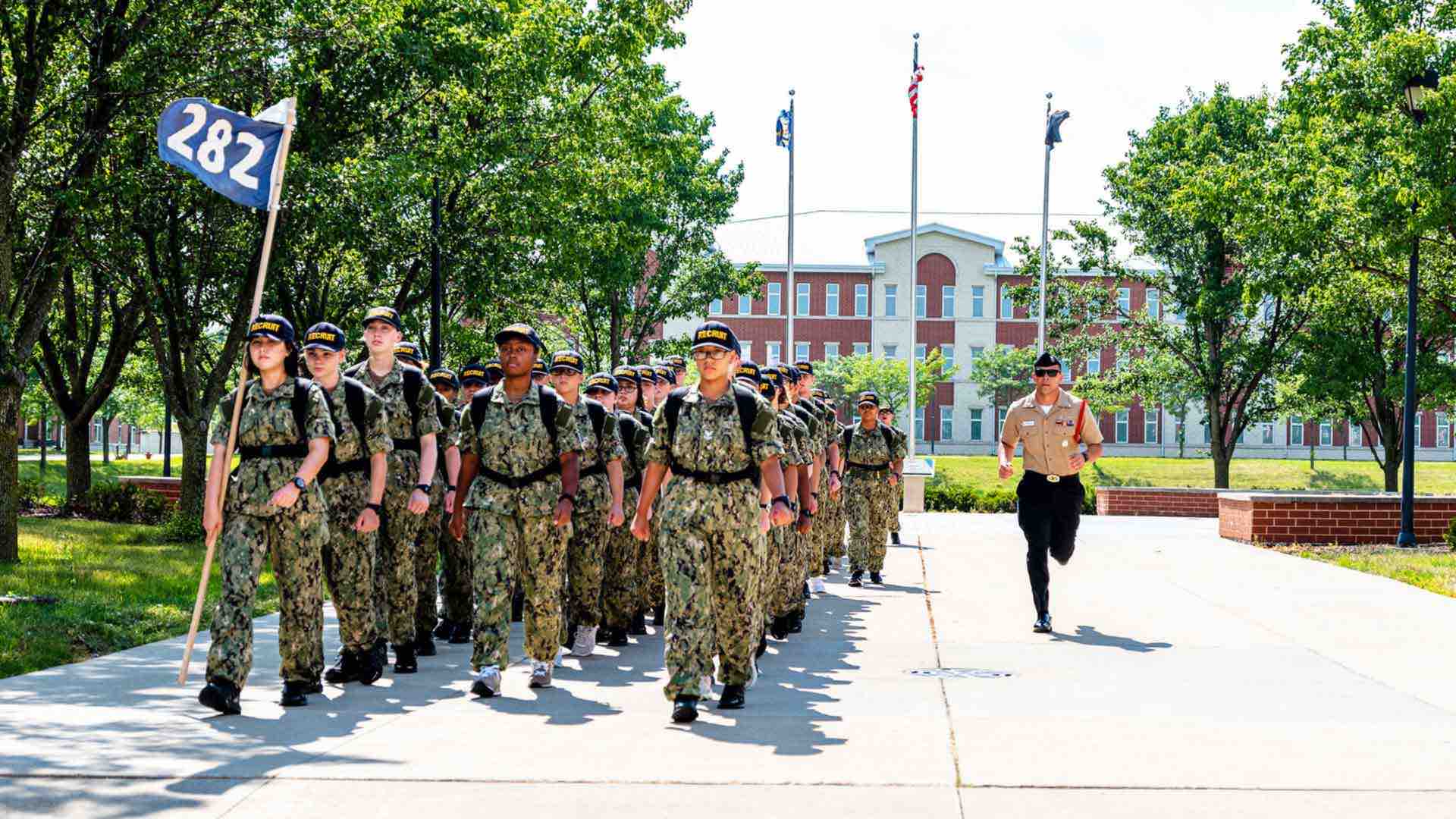
You’ll receive your uniforms, vaccinations and a haircut to help you meet Navy standards. You can arrive with your hair styled as desired, but men will have their hair cut and women will have the option to cut their hair OR keep the length and learn how to style it according to Navy standards.
During this week, you’ll also meet your Recruit Division Commander, who will be your leader and guide for the next 9 weeks. You’ll be assigned a bunk on your “ship” (barracks), attend an orientation brief, learn how to drill and march, and attend Navy classes. This is the week where you’ll learn the basics of basic training.
You’ll begin attending classes and your physical fitness training. During this time, you must pass a swim test, which is standard for all Sailors. If you cannot swim, you will receive training in a safe, monitored and controlled environment taught by Water Survival Instructors.
During this week, you’ll take classes in:
- Naval history
- General military customs and courtesies
- General military and professional knowledge classes
- Personnel and material inspections
- Watch standing
Weeks 2 - 3: Introduction
These weeks will be your introduction to Navy life. During week two and three, recruits learn about U.S. Navy ships and aircraft, Naval History, and the Uniform Code of Military Justice (UCMJ). During each Sailors’ Navy career, they will encounter many different platforms of ships and aircraft. The types of ships and aircraft have evolved to meet the challenge of changing warfare and doctrine. You’ll also be taught about Sexual Assault Prevention & Response (SAPR) and basic seamanship.
Basic seamanship skills are essential for all Navy Sailors. These skills include line handling, shipboard watch standing, and sea and anchor detail. During their training, recruits will practice these skills on a simulated naval vessel called the USS Marlinespike.
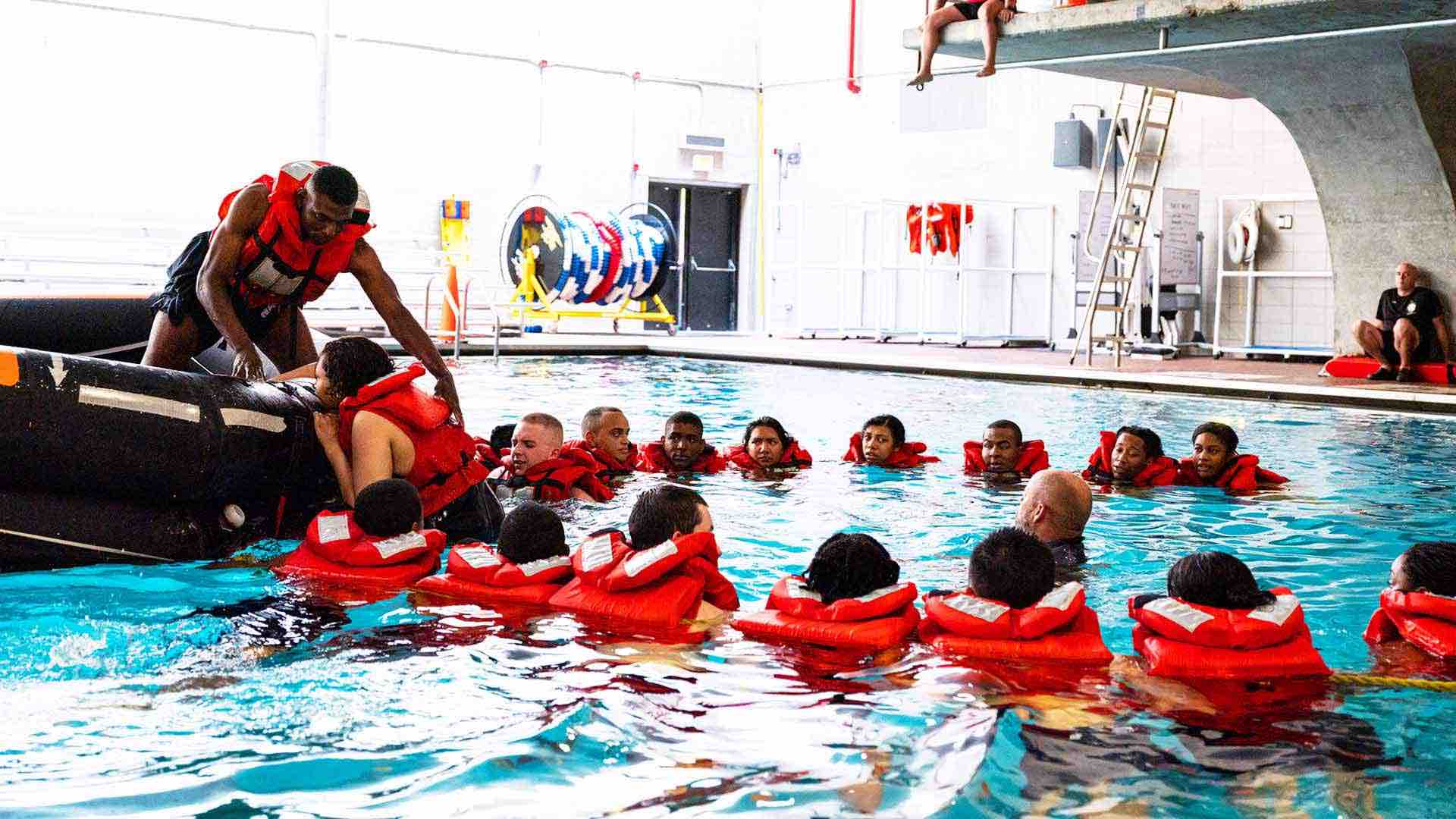
During these weeks, you’ll take classes in:
- Naval history
- Enlisted Rate/Officer Rank
- First Aid Training
- Man Overboard Drills
- Basic Seamanship & Marlinspike Line Handling
Weeks 4 - 6: Hands-On
You’ll continue your knowledge classes but also begin to train with actual equipment. You are introduced to the essential skills of weapons handling and the small arms trainer. This training phase is crucial, as it equips you with the knowledge and expertise to handle weapons safely and effectively.
You’ll learn the following:
- Operational Stress Control
- Personnel and Material Inspections
- Firefighting training and first-aid techniques
- Drill
- Firearms and weapon training
- Physical training
In addition to attending class and training, you'll take an academic test.
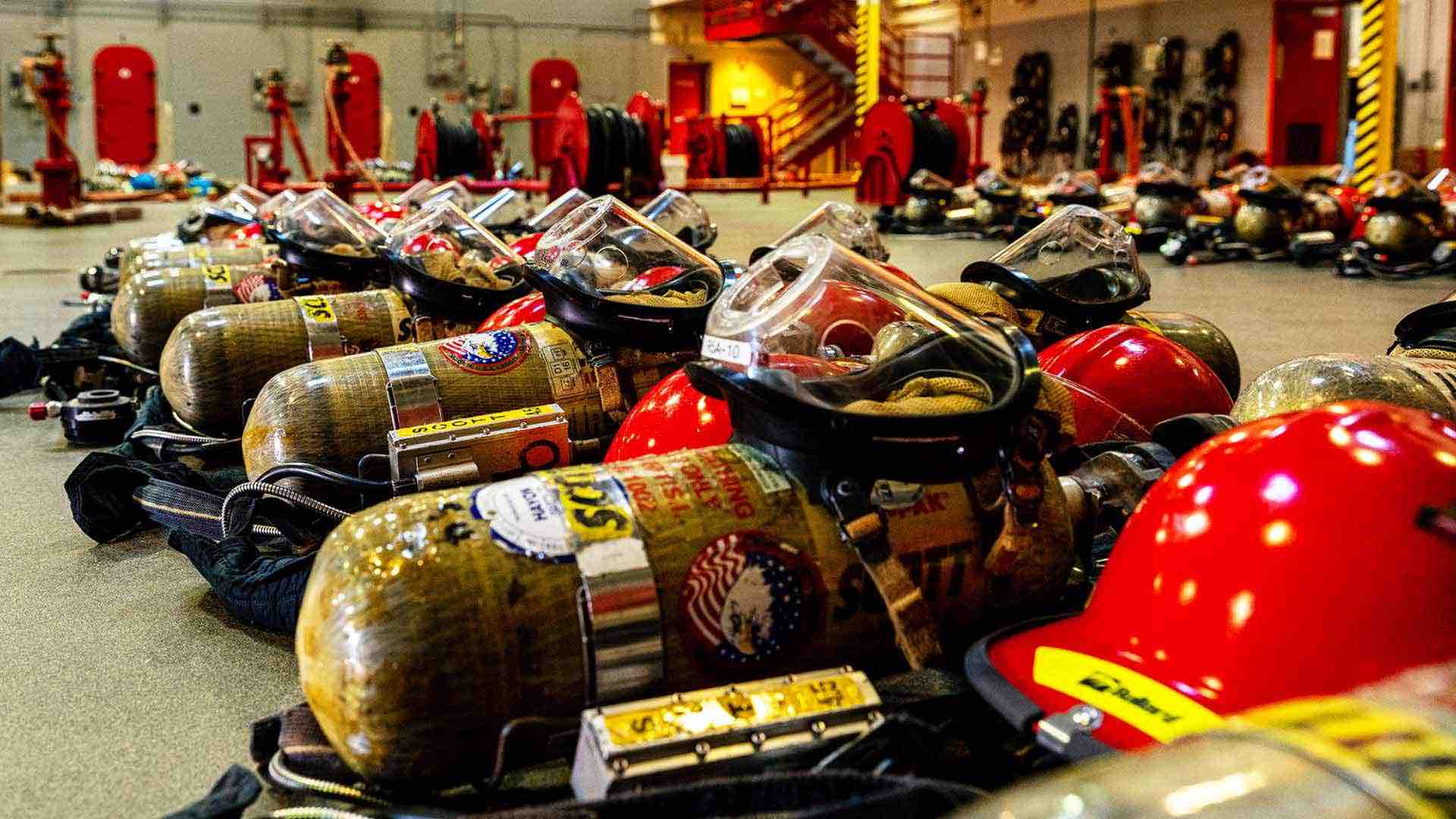
Week 7 - 8: Evaluation & Battle Stations
During weeks seven and eight, recruits complete their firefighting assessment and their final personnel inspection. Physical and mental preparation is crucial in developing resilience and strength to overcome fleet challenges. They also complete their capstone events: the Official Physical Fitness Assessment (PFA) and Battle Stations. Using the latest technology, recruits are tested in a variety of shipboard scenarios that require the sum of their knowledge and ability. Battle Stations is a final test to determine if the new recruit is ready to join the fleet.
You’ll accomplish the following:
- Physical training
- Firefighting, line handling, and weapons assessment
- Fleet and shipboard living classes
- Final drill inspection
- Official PFA
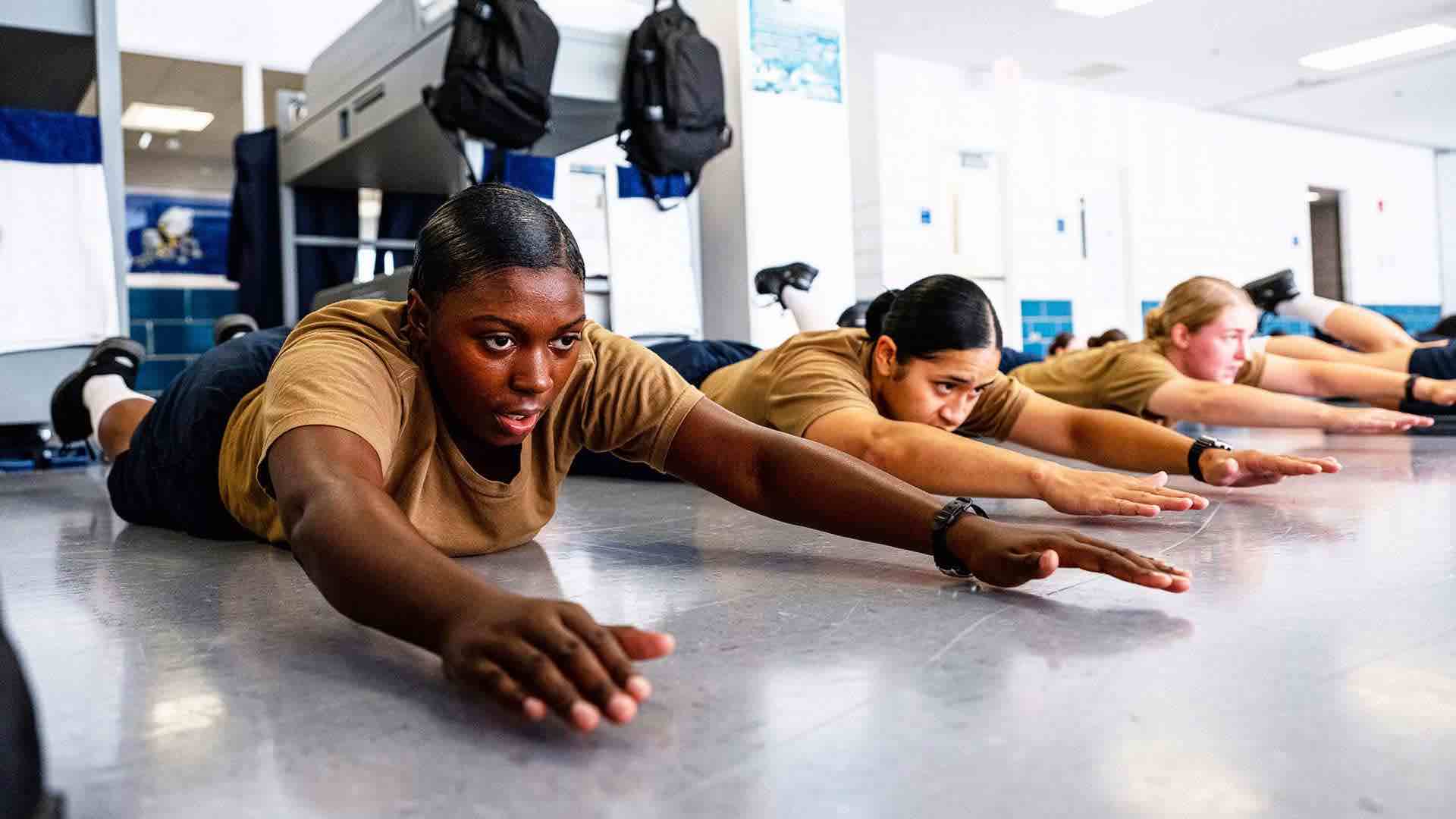
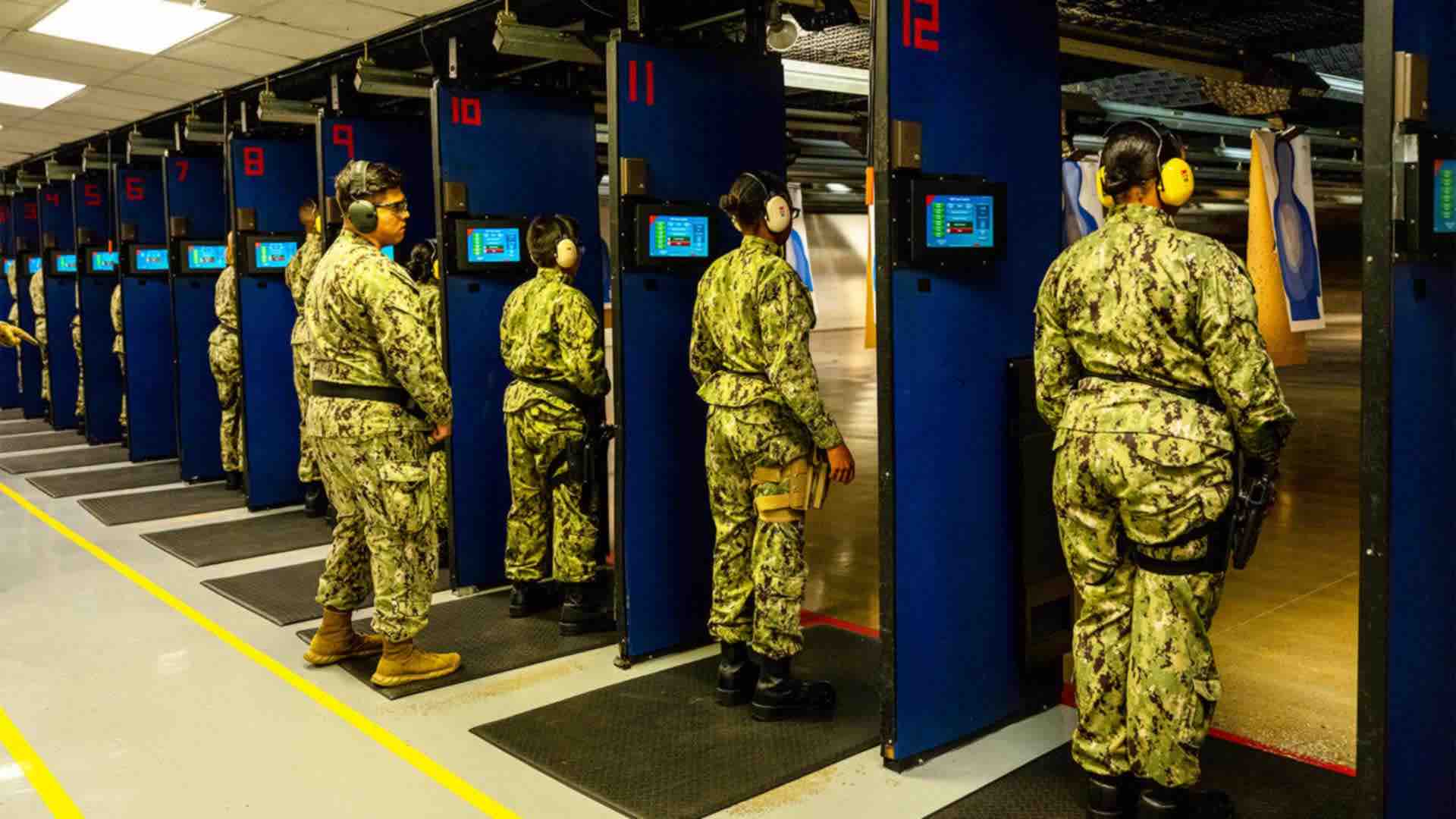
Week 9: Junior Sailor & Graduation
During week nine, recruits graduate boot camp during the Pass-in-Review Ceremony. The Pass-In-Review Ceremony is a formal military event that acknowledges the new recruits' hard work and dedication. It is a special occasion that brings together the future of the Navy with our long-held Naval traditions and customs.
Sailors wear their dress uniforms and leave the base for the first time as a reminder of their commitment to serve the country. They are Naval ambassadors to local civilians and everyone who sees them in their uniform.
In your final week you’ll experience:
- Professional development classes
- Small unit leadership classes
- Graduation
